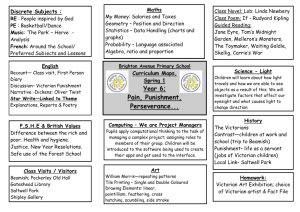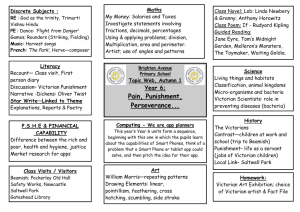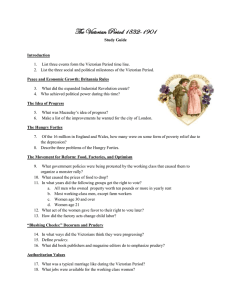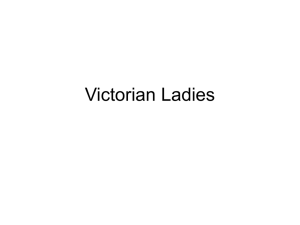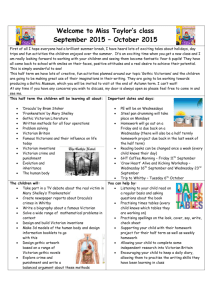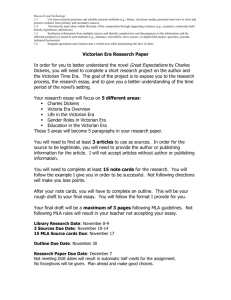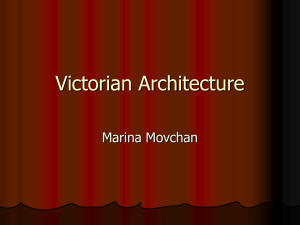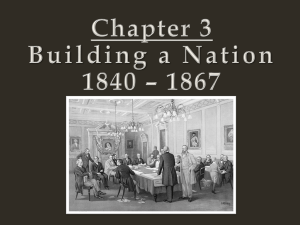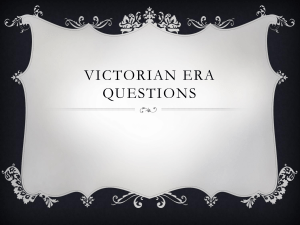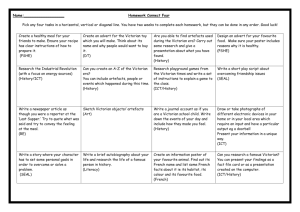The Victorian Period
advertisement
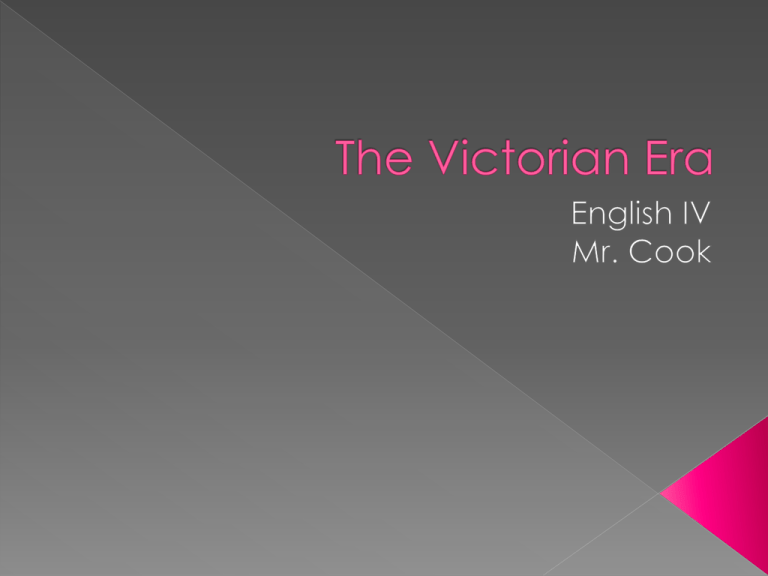
1. Victorians believed that reason and courage could overcome the problems that festered the 1840’s. 2.Middle-class Victorian society was characterized by its code of respectability, decorum, and morality. 3. Macaulay voiced middle-class attitude toward government, history, and order. 4. The first decade of Victoria’s reign was known as the Hungry Forties. 5. People lived 12 to a room and two toilets for every 250 people. 6. Universal adult suffrage in 1928 extended the right to vote to women at the age of 21. 7. Factory Acts limited the working day to 10 hours, with a half-holiday on Saturday. 8. In the 1840’s, 40% of couples getting married could not write their names on their marriage certificates. By 1900, 90% of the population were literate. 9. Prudery=Things that would make people blush were abandoned. 10. People were arrested for distributing information about STD’s. 11. Victorian society regarded seduced or adulterous women as “fallen” and pushed them to the margins of society. 12. Women who did not marry had few jobs open to them. Working-class women could become servants, governesses, or teachers. 13. (Look up in your textbook). 14. Victorian writers asked whether material comfort satisfied human needs and wishes. They questioned the cost of exploiting earth and human begins to achieve comfort. 15. Charles Dickens was the most popular figure in Victorian literature. 16. The highest purpose of a poet, or any writer, was to make readers aware of the connection between earth and Heaven, body and soul, material and ideal (pg. 692). 17. Late Victorian writers told stories of lovers and friends betrayed by unfaithfulness, war, and the other troubles that humans add to the natural trials of mortal life. Victorian Era was characterized by peace and prosperity. Industrial Revolution had an immediate influence on the Victorian Era. Progress was measured by material improvements. Social problems in Queen Victoria’s reign lead to many different elections. Genteel best describes the ideal behavior of literary Victorians. Scientific/technological advances of the era gave early Victorians a sense of confidence. Many Victorian writers hoped their works would raise doubts over materialism. Plague Wind=Smog. Finding it difficult to believe in an infinite power, many writers became skeptical by the end of the 19th century. Late Victorian lit. focused on human troubles in an indifferent world. Poetry contains a musical effect due to: rhyme, meter, and alliteration. Dramatic Monologue- Poem in which a speaker, who is not the poet, addresses a silent listener. Petrarchan/Italian Sonnet- Divided into an octave and a seset. Assonance- Rep. of vowel sounds. Couplets- Two consecutive lines of poetry that rhyme. Allegories- Can have a literal and symbolic level. Antonyms- Has the opposite, or nearly opposite, meaning of another word. Internal Conflict- Conflict within a character. External Conflict- Conflict between character and a group, force of nature, another character. Theme- Rarely stated directly, may differ from reader’s interpretation, may relate to time period the piece was written in.


